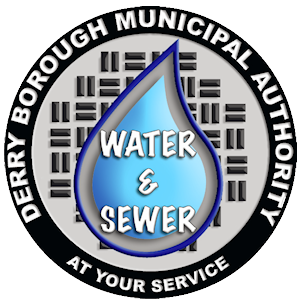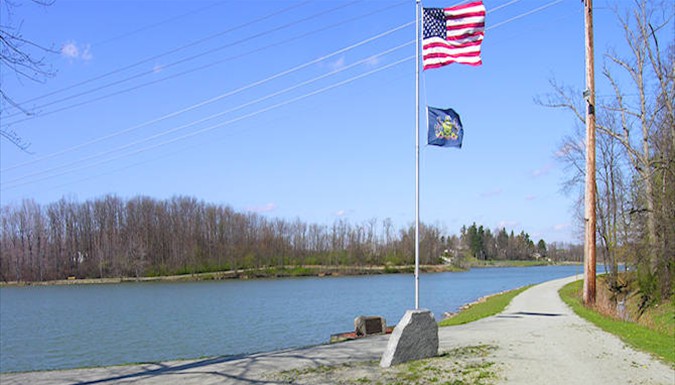Frequently Asked Questions
Where can I pay my water bill?
Bills can be paid at the Authority office (via, cash, check, money order, or credit card). Bills can also be paid at Ameriserv’s Derry Branch (via cash or check). You may also sign up for Auto Bill pay, or you may pay online here.
How do I apply for water service?
Applicants may visit our offices to fill out an application or call to have one forwarded to you. If you are a tenant, your landlord must also sign the application. An application and cost estimate for a line extension and new tap is also available at our office at 620 N. Chestnut Street in Derry Borough.
Why do I have to be home when you turn the water back on when I don't have to be there when you turn it off?
Customers are asked to be at home to check for running water. It’s also a good idea to check for adequate pressure. Our regulations prohibit us from turning water on to a vacant property.
If I rent out my property am I still responsible for the bill as property owner?
Yes property owners are ultimately responsible for the water and sewer bills at their rentals.
I live in a mobile home. Will the water authority thaw my frozen pipes?
The Municipal Authority does not work on private service lines. Have your plumber repair your pipes and call our office if the water meter was damaged. A service charge may apply to have your water turned off at the curb while repairs are made.
Is there fluoride in my water?
Derry Municipal Authority does not put fluoride in the water.
Where does my water come from?
Your water is surface water that is collected from Chestnut Ridge above the Borough of Derry. It is piped to Ethel Lake and then to the Water Treatment Plant adjacent to the lake. Water is then filtered, disinfected and pumped into the distribution system and also in to storage tanks. Potable water is drawn from the storage tanks to supply the distribution system when the filter plant is not pumping. A back up well is also located on Chestnut Ridge above Derry and is primarily used in the summer time during low water conditions and is piped into Ethel Lake.
What is hard water?
Water with a high concentration of dissolved minerals is termed hard water. The three common minerals dissolved in our water are Calcium, Iron and Manganese. Water is a great solvent and over time, it will dissolve almost any material. This natural occurrence is what effects water hardness. The amount of soap or detergent that water can consume is what is being referenced when we talk about water hardness.
When water that contains any degree of hardness is heated, for instance in your home water heater, it will leave residual mineral deposits. You may have noticed this as a white powder or small white beads. They will typically accumulate on faucet aerators or showerheads. Flushing your line will eliminate them. Soaking these fixtures in vinegar will also reduce mineral (calcium) deposits. We measure hardness as milligrams per liter (mg/l) or grains per gallon (gr/gal). The conversion factor is 17.1 mg/l equals 1 gr/gal of hardness.
The following table classifies water hardness:
|
Description |
Hardness (mg/L) |
Hardness (gr/gal) |
|
Extremely soft |
0 - 45 |
0 - 2.6 |
|
Soft |
46 - 90 |
2.7 - 5.2 |
|
Moderately hard |
91 - 130 |
5.3 – 7.6 |
|
Hard |
131 - 170 |
7.7 – 9.9 |
|
Very hard |
171 – 250 |
10.0 – 14.6 |
|
Excessively hard |
250 + |
14.7 + |
Is our water in Derry hard or soft?
Our water comes from streams and snow melt. It is surface water and it does not pick up high levels of dissolved minerals that attribute to hardness. We therefore have “naturally soft” water. Generally, our surface water has a hardness of between 36 and 40 mg/l, which converts to 2.1 to 2.3 grains per gallon. This puts our water in the “extremely soft” range.
What is pH?
pH is a measure of the concentration of acid in a solution. In our case it is water.
Acid solutions have a pH from 0 up to 7. Seven is considered Neutral. The lower the number, the strong the acid.
Base solutions have a pH from 14 down to 7. The higher the number, the strong the base.
The Derry Municipal Authority maintains finished water with a pH slightly higher than neutral - usually at 7.1.
If the fire hydrant near my home is ever hit by a car, will water shoot high into the air and then flood my yard and basement?
That only happens in movies. Fire Hydrants have an underground valve which is closed. In addition there is a traffic flange located near ground level that controls where the hydrant will break upon impact. Pipes underground occasionally will crack or break causing a leak depending on the angle in which the hydrant is struck, but rarely will a flood occur.
Last Updated: Sunday, January 22, 2023
Copyright © 2026 Municipal Authority of Derry Borough, Westmoreland County, PA. All Rights Reserved


 1
1 Return to Top of Page
Return to Top of Page